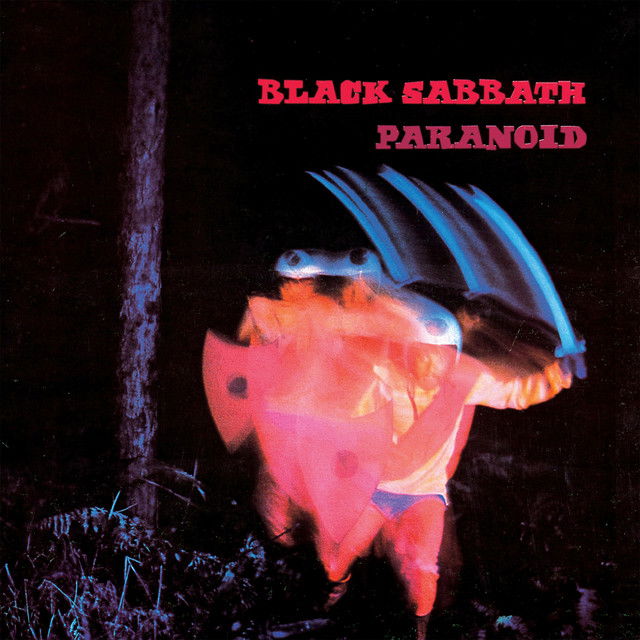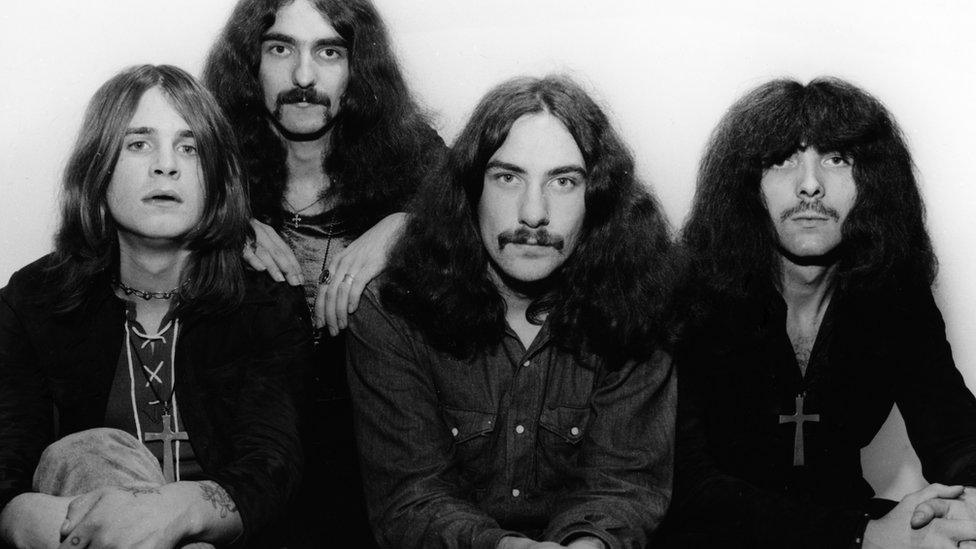Song Stories: Black Sabbath: War Pigs
The air-raid siren cracks the silence. Guitars explode into motion. A slow, mournful riff lumbers forward like a tank through mud. This is no ordinary rock song. It's a thunderous indictment, of war power and corruption that helped to mould a new genre and shattered peoples thoughts and illusions about rock music could be.
'War Pigs' by Black Sabbath is steeped in folkore. ‘Walpurgis’, the song made reference to Walpurgis Night. A European pagan festival often linked with witches and occult imagery. Geezer Butler, Sabbath’s bassist and chief lyricist, wasn’t interested in Satanism per se. Instead, he used the imagery symbolically: the real evil, he said, was war itself. In his words, “War was the big Satan.”
But the record label wasn’t having it. They worried the song’s original title was too blatantly “Satanic” for the mainstream. So the name was changed to ‘War Pigs’, and the track was rebranded to reflect its overtly anti-war stance. The lyrics remained the same, but the new title sharpened the focus. Now the song didn't just evoke black masses, it condemned those in power who orchestrate the death of the working class from behind their desks.

Like much of Black Sabbath’s early material, ‘War Pigs’ came to life in a live setting before it was ever recorded. The band, gigging heavily across Europe in smoky clubs and packed halls, would stretch the song out in jam sessions, letting the music breathe and mutate from night to night. Tony Iommi’s grinding, doom-laden riffs gave the song its weight, while Bill Ward’s shifting drum patterns and jazzy flourishes added an unpredictable tension. It was during these live explorations that the song began to take shape—not as a single composition, but as a living, evolving statement.
The lyrics were layered in later by Geezer Butler, whose bleak worldview and literary bent infused the instrumental with purpose. Ozzy Osbourne’s vocal delivery more accusatory than theatrical brought an urgency that elevated the track into something bigger than Sabbath’s usual occult fare. With its ominous tone and sharp political bite, the song grew from improvisation into a fully formed protest anthem.
When it came time to record ‘War Pigs’ for the band’s second album, Paranoid, producer Rodger Bain and engineer Tom Allom made key decisions that pushed the song’s impact further. The air-raid siren at the start, added without the band’s direct involvement set the tone immediately, evoking visions of wartime panic and destruction. It wasn’t part of the original jams, but it instantly became one of the most recognizable openings in rock history.
The song’s explosive ending, often overlooked, is equally important. Dubbed “Luke’s Wall” on the U.S. release, the final section transforms the lumbering protest into a speed-fueled sprint, showcasing Sabbath at their most musically aggressive. Iommi’s guitar solos erupt over a galloping rhythm section, tearing through the mix like a final act of rebellion. It’s a rare example of a song that both condemns war and mirrors its chaos
The power of ‘War Pigs’ lies in its lyrical bluntness. Right from the opening lines
“Generals gathered in their masses / Just like witches at black masses…”
the song pulls no punches. The comparison between military leaders and occult sorcerers paints a damning picture of those who start wars but never fight them.
Geezer Butler’s lyrics continue:
“Politicians hide themselves away / They only started the war…”
These lines hit hard in 1970, during the Vietnam War, but Butler always insisted the song wasn’t about one conflict in particular. It was—and remains—a universal condemnation of systemic violence and elite hypocrisy. In the apocalyptic final verse, justice is served:
“Now in darkness, world stops turning / No more war pigs have the power…”
And then, perhaps the most chilling line in Sabbath’s discography:
“Satan, laughing, spreads his wings…”
Whether you interpret this as a warning or a bitter irony, it leaves an unforgettable imprint.
‘War Pigs’ wasn’t just the opening track on 1970’s ‘Paranoid’—it was meant to be the album’s title. But when the band recorded the song ‘Paranoid’ as a last-minute filler, the label decided the shorter track had more commercial appeal. The album name changed, but ‘War Pigs’ remained the spiritual and political centerpiece of the record.
The song’s heavy, theatrical sound helped define the sonic language of heavy metal. But beyond its genre significance, ‘War Pigs’ became a cornerstone of protest music covered by everyone from Faith No More to Brass Against, and sampled or quoted in media far beyond metal’s usual boundaries.
Even today, fans return to the track in times of global tension. Its imagery feels as relevant as ever, with some cautioning against how often it’s misunderstood or misused in war-themed movies and games. After all, ‘War Pigs’ isn’t a battle cry, it's a warning.

What makes ‘War Pigs’ so enduring isn’t just its weighty riff or sinister tone it’s the way it fuses musical power with moral outrage. Black Sabbath, formed in the industrial heart of Birmingham, England, brought the grit of their surroundings into every chord. They didn’t just play heavy they meant it.
‘War Pigs’ remains one of the greatest protest songs ever written, cloaked in distortion and fury but rooted in clarity and purpose. It’s a musical siren an alarm against blind obedience, a requiem for the innocent, and a furious demand for accountability. Over 50 years later, it still echoes with relevance.
For Ozzy Osbourne and Archie
Thank you for reading
Jack